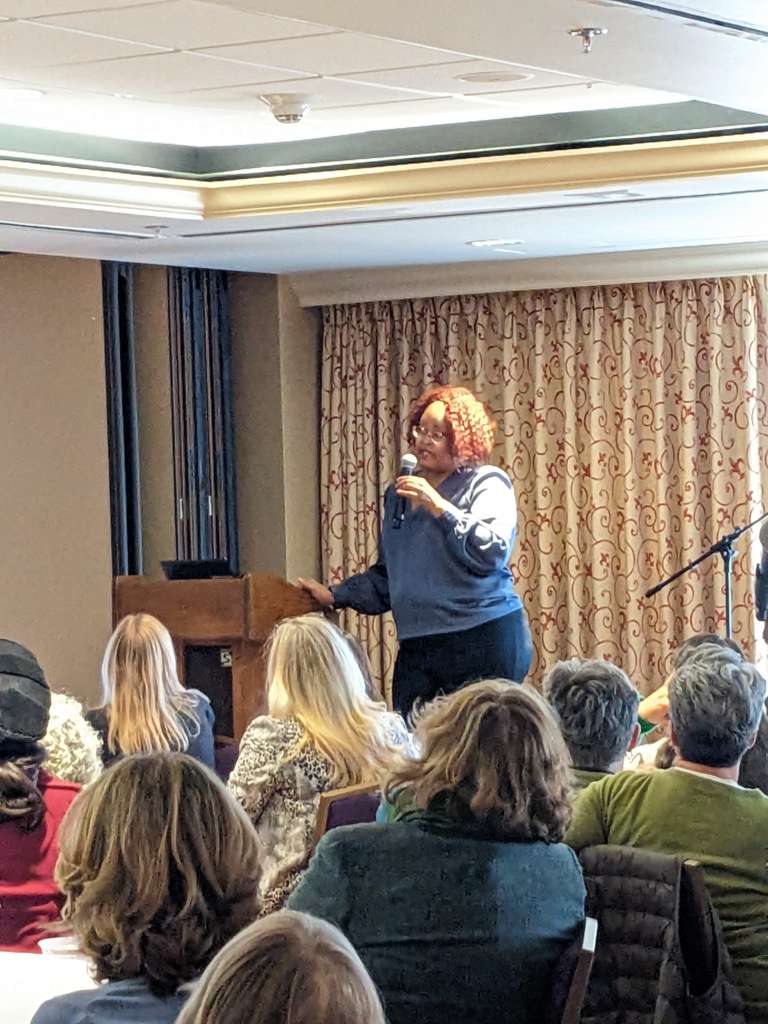This month voters in Ohio passed a ballot initiative, Issue 1, that enshrined reproductive rights in the Ohio Constitution — contraception, fertility treatment, abortion, and miscarriage care — restoring Roe v. Wade-era access in Ohio and protecting “the right to abortion up to the point of fetal viability.” Former President Donald Trump carried Ohio with 53% of the vote in 2020, but 56.6% of voters supported Issue 1. Ohio joins California, Michigan, and Vermont in amending their state constitutions to protect abortion, and this has anti-abortion activists concerned.
“The pro-life community kind of finds themselves on their heels — in fact, I think that’s generous — on their backs after losing these ballot initiatives over and over and over again at the state level,” lamented Centennial Institute Director Jeff Hunt during a Nov. 10 episode of the “Frontier Freedom Hour,” alongside his wife Nicole, who serves as a spokesperson and writer for the Christian advocacy group Focus on the Family.
In 2024, more states will be voting on whether to adopt similar measures.
“Looking ahead, we’re expecting to see at least six, possibly more states voting on pro-abortion amendments next year,” said Nicole. “And some of those states include Arkansas, Missouri, South Dakota, Nebraska, Arizona and Florida.”
Facing more potential electoral losses in the fight against abortion, Nicole Hunt recommends activists attempt to make it more difficult to pass ballot measures. “What I would encourage is that pro-life lawmakers in those states, you need to be working right now to tighten up the procedures by which you can amend the state constitution in your state,” she said. “For instance, in Ohio, there was an effort to try to heighten the threshold of passage from a majority vote to 60%.”
Abortion advocates are not surprised by the success of initiatives like Issue 1. “We know that these ballot initiatives are winning propositions,” says Dr. DeShawn Taylor, an Arizona-based OB-GYN, abortion provider, author, speaker and activist. “If it gets on the ballot, it’s going to pass. It’s going to get the vote if it withstands all the challenges.”

While initiatives like Issue 1 seem to be a portent of doom for anti-abortion activists, pro-abortion activists like Taylor warn that initiatives like Issue 1, and those coming up for a vote in Nebraska and Arizona, contain viability language, limiting abortions after 22 to 24 weeks.
“I hope that advocates will have the courage to introduce initiatives that don’t have viability language in them, because the average person who needs to have an abortion or advocate for people’s ability to get an abortion doesn’t know what viability means,” says Taylor. “I don’t think, ultimately, it really matters whether that language is missing from a ballot initiative.”
Colorado’s proposed 2024 “Right to Abortion” ballot measure does not include viability language.
According to Taylor, conservative elements within the pro-abortion movement’s funders are driving the inclusion of such language. “Many of us who actually boots on the ground, we’re like, ‘We don’t need that language,’” says Taylor. “According to them [it’s about] polling. It polled well, and I call that to question. I think it’s a matter of the folks who are funding these efforts are more conservative. They actually like viability bans and aren’t comfortable with people having later abortions. That is something that at some point we’re going to have to have a reckoning with within our movement, a growing incongruence between what funders are comfortable funding and what we as the people on the ground feel is necessary to preserve and expand access to care.”
Taylor also recommends pushing Democratic candidates on their position on abortion. “For us in Arizona, we ended up with a pro-life Democrat [Sen. Catherin Miranda] in the [Arizona Senate],” she says. “We’re like, ‘How does that even happen?’ Especially in the district that she ran in that is really, firmly, strongly blue. One thing that we learn is that people can win with that if we don’t actually ask them what their policies are on abortion.”
In 2022, Louisiana’s Gov. John Bel Edwards, a Democrat, who describes himself as “pro-life,” signed legislation that would make doctors who perform abortions subject to prison terms of up to 10 years.
According to Nicole Hunt, it is the moderate and unaffiliated voters who are swaying the elections. “It’s those people in the middle,” she said. “It’s not the conventional pro-aborts or the conventional pro-lifers. It’s the folks in the middle who aren’t exactly sure what they believe, that don’t exactly have clear convictions when it comes to abortion, that the culture has influenced them to think that they might need to use it as a backup birth control, and ultimately think that these scare tactics are true, that they believe the lies of the left. I think it’s affecting those Americans who are in the middle, who really aren’t convicted on the issue, but they don’t know what to believe, and they’re listening to the loudest voices in the square. Right now that happens to be the abortion lobby.”
For Hunt, the battle against abortion is a moral one. “We fight for the sanctity of human life because there are women and families and babies who are being victimized by these constitutional amendments,” she said. “The point of the pro-life movement is to help these women, to defend the innocent, to promote life over death. A culture of life is better than a culture of death, and ultimately, this is about overcoming social evils.”
Taylor is also the author of Undue Burden: A Black, Woman Physician on Being Christian and Pro-Abortion in the Reproductive Justice Movement, and she pushes back against the anti-abortion narrative pushed by members of the Christian right. “When you look at things from a factual basis, 60% or more of people who have abortions have a faith,” she says. “That means they’re reconciling whatever understanding they have about the higher power and their relationship with it, but they’re still going to have their abortion. So the question is, what are we going to do as people of faith, and specifically Christians, to help these people? Because harming them by furthering stigma, harassment, and shame for a decision that they’re going to make anyway is not, honestly, very Christian-like at all. Our Christian faith teaches us that we are not the judge, and that people are working out their own salvation. It’s between them and God, what they’re doing. This whole process of how the narrative has gone in terms of demonizing and dehumanizing the people who have abortions is not my understanding of Christian faith.”




